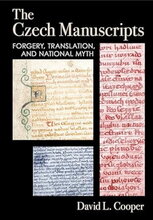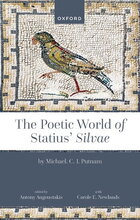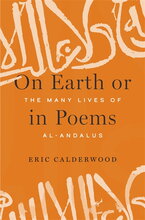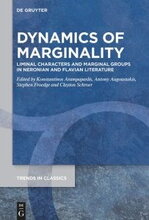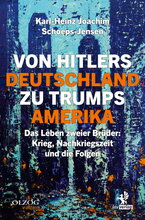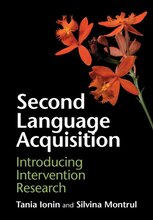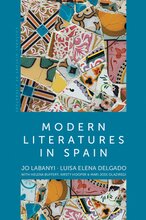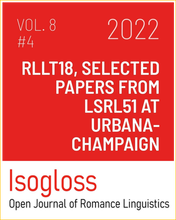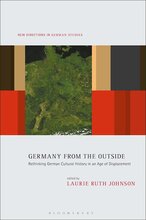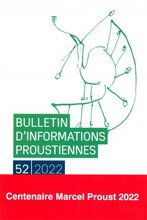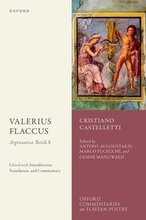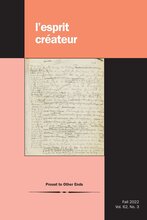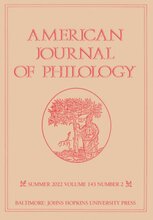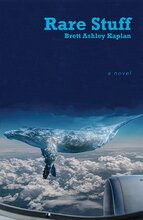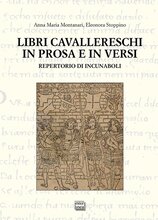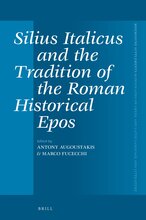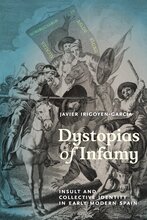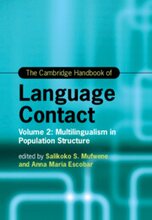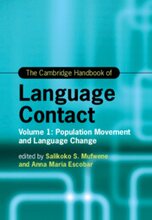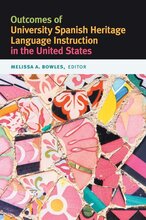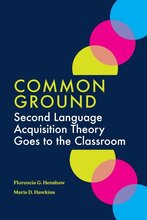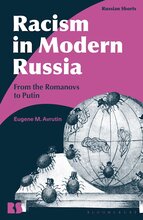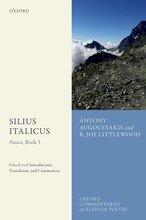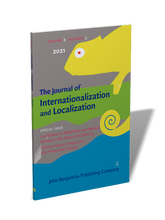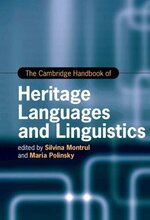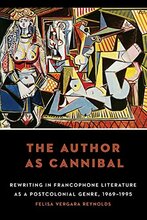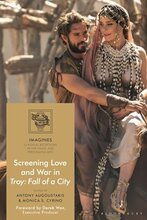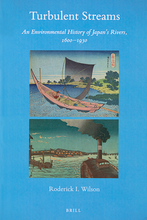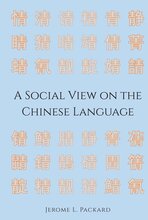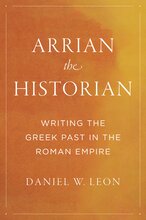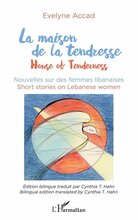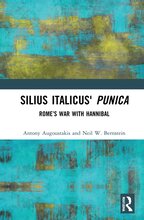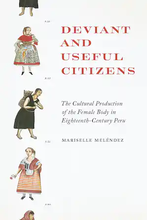Faculty throughout the School of Literatures, Cultures & Linguistics share their expertise, knowledge, and research in books on a wide variety of topics.
Have a book you'd like us to include? Please email us.
"The Czech Manuscripts: Forgery, Translation, and National Myth" by David Cooper, professor of Slavic Languages & Literatures, is dedicated to one of the most important literary forgeries on the model of Macpherson's Ossianic poetry. The Queen's Court and Green Mountain Manuscripts, discovered in 1817 and 1818, went on to play an outsized role in the Czech National Revival, functioning as founding texts of the national mythology and serving as sacred works in the long period when they were considered genuine. Cooper analyzes what made the Manuscripts a convincing imitation of their Serbian and Russian models. He looks at how translation shaped their composition and investigates the quasi-religious rituals and commemorative practices that developed around them. (Cornell University Press, October 2023)
"The Poetic World of Statius' Silvae," co-edited by Antony Augoustakis, professor of classics, with Carole Newlands, a professor at the University of Colorado Boulder, offers a literary analysis of intertextual engagement with Virgil's poetry; provides valuable insight into the cultural and social identity of late first-century imperial Rome; and displays the pioneering nature of Statius' Silvae in the development of ecphrasis as an important social and literary mode in Roman poetry. (Oxford University Press, June 2023)
During the Middle Ages, the Iberian Peninsula was home not to Spain and Portugal but to al-Andalus. Ruled by a succession of Islamic dynasties, al-Andalus came to be a shorthand for a legendary place where people from the Middle East, North Africa, and Europe lived together in peace. That reputation is not entirely deserved, yet, as "On Earth or in Poems: The Many Lives of al-Andalus" by Eric Calderwood, professor of Spanish and comparative and world literature, shows, it has had an enduring hold on the imagination, especially for Arab and Muslim artists and thinkers in Europe, the Middle East, and North Africa. In this book, Calderwood traces the role of al-Andalus in music and in debates about Arab and Berber identities, Arab and Muslim feminisms, the politics of Palestine and Israel, and immigration and multiculturalism in Europe. (Harvard University Press, May 2023)
"Dynamics of Marginality: Liminal Characters and Marginal Groups in Neronian and Flavian Literature," co-edited by classics alumni Konstantinos Arampapaslis, Stephen Froedge, and Clayton Schroer and Antony Augoustakis, professor of classics, explores the theme of marginality in the literature and history of the Neronian and Flavian periods. (De Gruyter, April 2023)
"Von Hitlers Deutschland zu Trumps Amerika" by Karl-Heinz Schoeps-Jensen, professor emeritus of Germanic Languages & Literatures, is an autobiographical reminiscence about two brothers, the twentieth century, and the legacies of fascism and of war. Hans-Günther Schoeps died aged 24 during World War II, and his younger brother Karl-Heinz (the author) moved to the United States. What seemed like two very different paths reveal strange affinities in the early 21st century: Ukraine, where Karl-Heinz's brother lost his life, is again war-torn, and fascist tendencies threaten democracy in the U.S. and elsewhere. (Lau Verlag, April 2023)
Based on classic and cutting edge-research, "Second Language Acquisition: Introducing Intervention Research" by Tania Ionin, professor of linguistics, and Silvina Montrul, professor of Spanish and linguistics, shows how grammatical phenomena can best be taught to second language and bilingual learners. Bringing together second language research, linguistics, pedagogical grammar, and language teaching, it demonstrates how linguistic theory and second language acquisition findings optimize classroom intervention research. (Cambridge University Press, January 2023)
"Cultural History of Modern Literatures in Spain" by Jo Labanyi and Luisa Elena Delgado, professor of Spanish, provides the first cultural history of modern literatures in Spain. With contributors Helena Buffery, Kirsty Hooper and Mari Jose Olaziregi, they showcase the country's cultural complexity by working across its four major literary cultures - Castilian, Catalan, Galician and Basque - from the eighteenth century to the present. An introduction to major historical debates as well as an original analysis of key texts, this book is important reading for students and scholars with an interest in the literatures and cultures of Spain. (Polity Press, January 2023)
This published volume of 14 peer-reviewed papers from the 51st Linguistic Symposium on Romance Languages by the Open Journal of Romance Linguistics journal, Isogloss: ("Isogloss: Open Journal of Romance Linguistics, Volume 8, No. 4") is the final result of three years of collaborative work between scholars from Spanish, French, and linguistics. The editors of the volume are Jonathan Macdonald (Spanish and linguistics), Ander Beristain (PhD, Hispanic linguistics), Robin Turner (PhD student in French linguistics), and Zsuzsanna Fagyal (French & Italian). Among the international collaborators, five are current or former faculty and graduate students in SLCL. (Universitat Autònoma de Barcelona, 2022)
"Native Speakers, Interrupted: Differential Object Marking and Language Change in Heritage Languages" by Spanish & Portuguese and linguistics professor Silvina Montrul brings together three heritage languages -- Hindu, Spanish, and Romanian -- spoken in the U.S. and demonstrates how heritage speakers drive morphosyntactic change when certain environmental characteristics are met. This book is essential reading for students and researchers of linguistics and multilingualism, immigration, education studies and language policy, as well as educators and policy makers. (Cambridge University Press, December 2022)
The nation-state is a European invention of the 18th and 19th centuries. In the case of the German nation in particular, this invention was tied closely to the idea of a homogeneous German culture with a strong normative function. As a consequence, histories of German culture and literature often are told from the inside. But what happens if we describe German culture and its history from the outside? Emphasizing current issues of migration, displacement, systemic injustice, and belonging, Germany from the Outside by Laurie Johnson, professor of Germanic Languages & Literatures, explores new opportunities for understanding and shaping community at a time when many are questioning the ability of cultural practices to effect structural change. (Bloomsbury, October 2022)
French and Italian professors François Proulx and Caroline Szylowicz (curator of rare books and manuscripts, Rare Book & Manuscript Library) published Bulletin d'informations proustiennes 52, the first comprehensive inventory of Marcel Proust’s drawings to the composer Reynaldo Hahn, documenting over 180 sketches Proulx and Szylowicz also contributed entries to the catalogue for Proust, la fabrique de l’oeuvre, a major exhibition organized by the Bibliothèque nationale de France. (Presses de l'Ecole normale supérieure, October 2022)
Classics professor Antony Augoustakis has edited a commentary on the eighth and final book of Valerius Flaccus' Flavian epic Argonautica together with professors Marco Fucecchi (University of Udine, Italy) and Gesine Manuwald (University College London, United Kingdom). The edition benefits from his wide-ranging knowledge of ancient poetry and provides perceptive insights into the texture of this important book on Medea’s departure from her home to follow Jason to Greece. (Oxford University Press, September 2022)
For the centenary of French novelist Marcel Proust’s death (November 18, 1922), French and Italian professor François Proulx co-edited a special issue of L’Esprit Créateur on “Proust to Other Ends” with Hannah Freed-Thall (NYU), featuring articles by leading scholars from France, the U.S. and Japan. Exploring all periods of French literature and thought, L'esprit créateur has been analyzing and documenting contemporary French and Francophone Studies for half a century. Contributors represent a variety of methodologies and critical approaches, and address literature, film, criticism, and culture. (Johns Hopkins University Press, September 2022)
“The Latin Language and Native Survivance in North America" by classics professor Craig Williams, has been published in a special issue of American Journal of Philology dedicated to the topic of “Diversifying Classical Philology.” In his article, Williams discusses texts from the 17th century to today in which Native North American writers reflect on or make use of Latin, marker of a European antiquity which has played a distinct role in colonizing processes on a continent which has its own still-living antiquity. (Johns Hopkins University Press, August 2022)
"Rare Stuff," the debut novel of Brett Ashley Kaplan, a professor of comparative and world literature and the director of the Initiative in Holocaust, Genocide, and Memory Studies, tells the story of a daughter’s search for answers about her mother’s disappearance, as well as a magical realism tale of Yiddish-speaking whales trying to save the planet. Kaplan is donating the proceeds of the novel to Whale and Dolphin Conservation. (Spuyten Duyvil, August 2022)
"Libri cavallereschi in prosa e in versi: Repertorio di incunaboli" by French & Italian professor Eleonora Stoppino catalogues all chivalric incunables (books printed before 1501) published in Italy, tracing their bibliographic and scholarly history. The volume contributes to the study of the complex epic universe that characterized Italian and European cultures, giving rise to the masterpieces of Boiardo, Pulci and Ariosto in the sixteenth century. The book, which brings together archival research and digital technologies, aims to be the ultimate resource on chivalric matter printed in Italy up to the year 1500. (Interlinea Press, Italy, July 2022)
In this collection of essays, classics professor Antony Augoustakis, in collaboration with Marco Fucecchi of the University of Udine, Italy, study Silius’ poem as an important step in the development of the Roman historical epic tradition. The Punica is analyzed as a transitional segment between the beginnings of Roman literature in the Republican age and Claudian’s panegyrical epic in late antiquity, shedding light on its ‘inclusiveness’ and its peculiar, internal dialectic between antiquarian taste and problematic actualization. (Brill, July 2022)
Insults, scorn, and verbal abuse—frequently deployed to affirm the social identity of the insulter—are destined to fail when that language is appropriated and embraced by the maligned group. In such circumstances, slander may instead empower and reinforce the collective identity of those perceived to be a threat to an idealized society. In "Dystopias of Infamy: Insult and Collective Identity in Early Modern Spain," professor of Spanish and Portuguese Javier Irigoyen García examines how the discourse and practices of insult and infamy shaped the cultural imagination, anxieties, and fantasies of early modern Spain. (Bucknell University Press, July 2022)
Language contact starts with the emergence of multilingual populations. Multilingualism involving plurilingualism can have various consequences beyond borrowing, interference, and code-mixing and code-switching, including language endangerment and loss. Bringing together contributions from an international team of scholars, The Cambridge Handbook of Language Contact Volume 2: Multilingualism in Population Structure—the second in a two-volume set edited by Spanish and Portuguese professor Anna Maria Escobar and University of Chicago professor Salikoko Mufwene—engages the reader with the manifold aspects of multilingualism and provides state-of-the-art research on the impact of population structure on language contact. (Cambridge University Press, June 2022)
Language contact—the linguistic and social outcomes of two or more languages coming into contact with each other—has been pervasive in human history. However, where histories of language contact are comparable, experiences of migrant populations have been only similar, not identical. Given this, how does language contact work? With contributions from an international team of scholars, The Cambridge Handbook of Language Contact Volume 1: Population Movement and Language Change—the first in a two-volume set edited by Spanish and Portuguese professor Anna Maria Escobar and University of Chicago professor Salikoko Mufwene—delves into this question from multiple perspectives and provides state-of-the-art research on population movement and language contact and change. (Cambridge University Press, June 2022)
"Outcomes of University Spanish Heritage Language Instruction in the United States," edited by Melissa Bowles, professor of Spanish and Portuguese, is a volume exploring the effectiveness of instructional methods for college-level Spanish heritage learners. The first of its kind, this volume addresses how receiving heritage classroom instruction affects Spanish speakers on multiple levels, including linguistic, affective, attitudinal, social, and academic outcomes. Examining outcomes of instruction in Spanish provides insights that can be applied to instruction in other heritage languages. (Georgetown University Press, April 2022)
"Common Ground: Second Language Acquisition Theory Goes to the Classroom" by Florencia Henshaw, director of advanced Spanish, and Maris Hawkins, offers language teachers concrete examples of how second language acquisition (SLA) principles meet the realities of the classroom. Reviewers say "Common Ground" is accessible to teachers at all levels yet firmly rooted in current questions of SLA. (Focus, an imprint of Hackett Publishing, April 2022)
"Racism in Modern Russia: From the Romanovs to Putin" by Eugene Avrutin, history professor and Slavic Languages & Literatures affiliate, examines the developing scientific and popular discourses on race in Russia and the associated prejudice, discrimination, and violence. Analyzing a wide range of sources, it marks the first serious attempt to understand the history of racism in Russia over a span of 150 years. (Bloomsburg, March 2022)
"Silius Italicus: Punica, Book 3" by classics professor Antony Augoustakis and R. Joy Littlewood, offers up-to-date English commentary on Book 3 of the Punica. It combines historical and philological approaches with material culture to illuminate Silius’ reimagining of Hannibal’s crossing the Alps and provides an introduction to the current state of scholarship on the poem. The Latin text is presented alongside an English translation and supplemented with maps and images to support understanding of the broad historical context of Silius' poem. (Oxford University Press, March 2022)
"Localizing a Covid phone app: A university class experience" by Kara Warburton, professor of Translation & Interpreting Studies, and Kamya Krishnan (MA '21, translation & interpreting studies) describes how Safer Illinois, a COVID-19 phone app, was localized by students of the MA program in translation and interpreting. The article, which was published in The Journal of Internationalization and Localization, explains the unique challenges of the project, as well as how it offered the opportunity to experience a real-life localization project. (John Benjamins Publishing Company, March 2022)
"The Cambridge Handbook of Heritage Languages and Linguistics," edited by Spanish and Portuguese and linguistics professor Silvina Montrul, together with Maria Polinsky, provides a state-of-the-art overview of the study of heritage languages from a number of different perspectives, ranging from theoretical linguistics to language education. Presenting comprehensive data on heritage languages from around the world, it covers issues ranging from individual aspects of heritage language knowledge to broader societal, educational, and policy concerns in local, global and international contexts. (Cambridge University Press, February 2022)
In the first decades after the end of French rule, Francophone authors engaged in an exercise of rewriting narratives from the colonial literary canon. In "The Author as Cannibal: Rewriting in Francophone Literature as a Postcolonial Genre, 1969–1995" by Felisa Vergara Reynolds, professor of French and Italian, presents these textual revisions as figurative acts of cannibalism and examines how these literary cannibalizations critique colonialism and its legacy in each author’s homeland. (University of Nebraska Press, January 2022)
"Screening Love and War in Troy: Fall of a City" edited by Anthony Augoustakis, professor of classics, is the first volume of essays published on the 2018 BBC One and Netflix television series Troy: Fall of a City. Covering a wide range of engaging topics, such as gender, race and politics, international scholars in the fields of classics, history, and film studies discuss how the story of Troy has been recreated on screen to suit the expectations of modern audiences. The series is commended for the thought-provoking way it handles important issues arising from the Trojan War narrative that continue to impact our society today. (Bloomsbury, January 2022)
"Freedom from Violence and Lies: Anton Chekhov’s Life and Writings" by Michael Finke, professor emeritus of Slavic Languages & Literatures, is an introduction to the life and work of one of the greatest writers of short fiction in history. In this biography, Finke analyzes Chekhov’s major stories, plays, and nonfiction in the context of his life, both fleshing out the key features of Chekhov’s poetics of prose and drama and revealing key continuities across genres, as well as between his lesser-studied early writings and the later works. (Reaktion Books, November 2021)
Documented through the reactions of various groups, including prominent politicians, journalists, and sociologists, “Chronic Aftershock: How 9/11 Shaped Present-Day France” by professor emeritus Jean-Philippe Mathy offers many valuable insights into the repercussions of 9/11 around the world and its profound impact on France. His comprehensive account addresses the rise of a small but influential group of self-described "anti-anti-Americans" who shared the views of American neoconservatives in support of regime change in Iraq, the widespread "I am Charlie" movement following the attacks against the offices of Charlie Hebdo, and more (McGill-Queen’s University Press, October 2021)
"Casting a Giant Shadow," edited by Rachel S. Harris, professor of comparative and world literature, and Dan Chyutin, is a collection of articles that embraces the notion of transnationalism to consider the limits of what is “Israeli” within Israeli cinema. It offers a new understanding of how cinema has operated artistically and structurally in terms of funding, distribution, and reception. This volume uses the idea of transnationalism to challenge the concept of a singular definition of Israeli cinema. (Indiana University Press, July 2021)
"Turbulent Streams: An Environmental History of Japan’s Rivers, 1600–1930," by Roderick Wilson, professor of history and East Asian languages and cultures and linguistics, describes how the rivers of Japan are both hydrologically and historically dynamic. Neither a story of technological progress nor environmental decline, this history introduces the concept of environmental relations as a category of historical analysis both to explore these fluvial interactions and reveal under-appreciated dimensions of Japanese history. (Brill, June 2021)
"A Social View on the Chinese Language," by Jerome Packard, professor emeritus of East Asian languages and cultures and linguistics, is intended to be a linguistic introduction to the Chinese language for the general reader and can be used in beginning-level Chinese linguistics courses. It is different from other Chinese linguistics surveys because it offers a view into linguistic phenomena that are also related to human behavior and society. (Peter Lang International Publishers, May 2021)
"Arrian the Historian: Writing the Greek Past in the Roman Empire," by Daniel Leon, classics, examines the works of Arrian of Nicomedia to show how Roman Empire-era Greek historians responded to their sophistic peers’ claims of authority and played a crucial role in theorizing the past at a time when knowledge of history was central to defining Greek cultural identity. (University of Texas Press, April 2021)
"La maison de la tendresse: nouvelles sur des femmes libanaises" or "House of tenderness: short stories on Lebanese women" by Evelyne Accad, professor emerita of French and Italian, consists of five short stories in bilingual format. These stories, which recount various forms of violence experienced by women in Lebanon, may be seen as portraits of women seeking to overcome obstacles and rebuild themselves. The characters here seek assistance in the form of tenderness, which may lead them to understanding and reconstructing the inner house of the self. (L'Harmattan, April 2021)
"The Corporate Terminologist," by Kara Warburton, lecturer in translation and interpreting studies, is the first monograph that addresses the principles and methods for managing terminology in content production environments that are both demanding and multilingual, such as those found in global companies and institutions. It describes the needs of large corporations and how those needs demand a new, pragmatic approach to terminology management. (John Benjamins Publishing Company, March 2021)
Composed in the first century CE, "Silius Italicus’ Punica: Rome’s War with Hannibal," translated by Antony Augoustakis, professor of classics, and Neil Bernstein, tells the story of the Second Punic War between Rome and Hannibal’s Carthage (218-202 BCE). It is not only a crucial text for students of Flavian literature, but also an important source for anyone studying early Imperial perspectives on the Roman Republic. (Routledge, March 2021)
"Deviant and Useful Citizens," by Mariselle Meléndez, professor of Spanish and Portuguese, explores the conditions of women and perceptions of the female body in the eighteenth century throughout the Viceroyalty of Peru. Meléndez introduces the reader to a female rebel, Micaela Bastidas, whose brutal punishment became a particularly harsh example of state response to women who challenged the system. (Vanderbilt University Press, February 2021)
